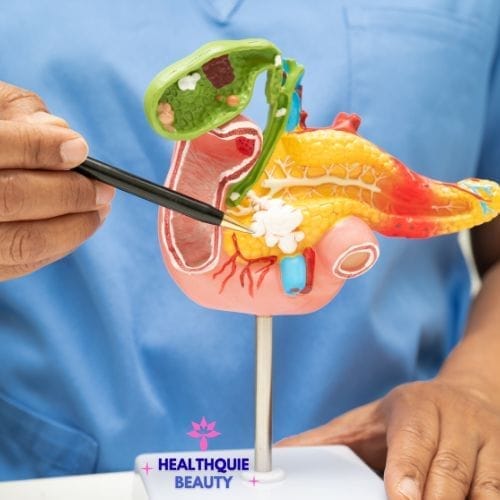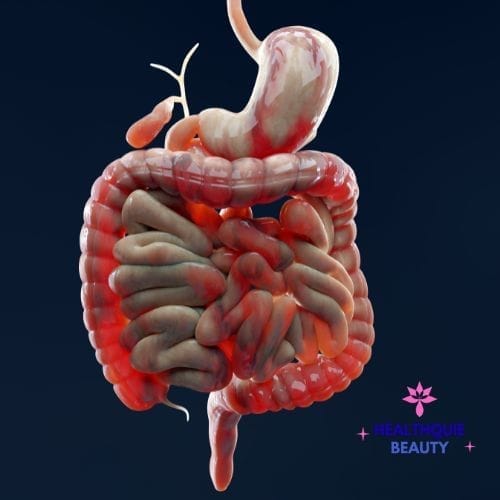
Common Digestive Disorders in Women and How to Manage Them Naturally
Common Digestive Disorders in Women
and How to Manage Them
Digestive issues are incredibly common, but women tend to experience them differently and more frequently than men. Hormones, lifestyle, and even stress levels can all influence how the digestive system works. In this article, we’ll explore some of the most common digestive disorders that affect women, their symptoms, and effective ways to manage them naturally and medically.
Why Digestive Health Matters for Women
The digestive system is more than just the pathway food travels through. It's closely tied to the immune system, mood, energy levels, and even the skin. For women, fluctuations in hormones like estrogen and progesterone can have a big impact on digestion, making symptoms more severe before and during menstrual cycles or during pregnancy and menopause.
1. Irritable Bowel Syndrome (IBS)
IBS is one of the most common digestive conditions in women.
It affects the large intestine and can cause:
Bloating
Abdominal pain or cramping
Constipation, diarrhea, or both
Gas and discomfort
Causes: Though not fully understood, IBS is linked to gut-brain
communication issues, stress, food intolerances, and hormonal fluctuations.
Management Tips:
Eat small, frequent meals
Avoid trigger foods (common ones include dairy, gluten, caffeine, and spicy foods)
Try the low FODMAP diet, which limits fermentable carbs
Practice stress-relief techniques like yoga, deep breathing, or walking

2. Acid Reflux (GERD)
Acid reflux happens when stomach acid flows back into the esophagus,
causing a burning feeling in the chest (heartburn). Women may experience it during pregnancy or due to hormonal changes that relax the esophageal muscles.
Symptoms Include:
Heartburn
Bitter or sour taste in the mouth
Difficulty swallowing
Chest discomfort
Management Tips:
Avoid large, fatty meals and acidic foods (tomatoes, citrus, chocolate)
Don’t eat 2–3 hours before lying down
Elevate the head of your bed
Drink chamomile or ginger tea
Over-the-counter antacids can provide quick relief

3. Constipation
Constipation is more common in women, especially during pregnancy
or hormonal shifts. It’s defined as having fewer than three bowel movements
per week, or passing hard, dry stools.
Causes:
Low fiber intake
Dehydration
Inactivity
Hormonal changes
Stress or anxiety
Management Tips:
Eat more fiber-rich foods (whole grains, fruits, vegetables, legumes)
Drink plenty of water (at least 8 glasses per day)
Exercise regularly
Prunes or flaxseeds may help stimulate bowel movements naturally

4. Gallbladder Issues
Women are more likely to develop gallstones than men, especially if they are pregnant, overweight, or taking estrogen-based birth control or hormone replacement therapy. Gallstones can block bile flow and lead to pain and digestive upset.
Symptoms Include:
Sudden pain in the upper right abdomen
Nausea or vomiting
Bloating and indigestion
Pain after fatty meals
Management Tips:
Eat a low-fat, high-fiber diet
Maintain a healthy weight
Avoid skipping meals
Seek medical advice if pain becomes severe or frequent
5. Lactose Intolerance and Food Sensitivities
Lactose intolerance is common in women, especially after age 30. It occurs
when the body lacks enough of the enzyme lactase to digest lactose
(the sugar in dairy).
Common Symptoms:
Bloating
Gas
Diarrhea
Stomach cramps after consuming dairy
Management Tips:
Use lactose-free dairy products or plant-based alternatives
Try lactase enzyme tablets
Keep a food diary to track symptoms and triggers
Food sensitivities to gluten, soy, or artificial additives can also cause
similar digestive issues and should be evaluated by a healthcare provider.

General Tips for Supporting Digestive Health
In addition to targeting specific conditions, there are habits every woman
can follow to keep her digestive system running smoothly:
Eat slowly and mindfully
Stay hydrated throughout the day
Incorporate fermented foods like yogurt, kefir, and sauerkraut for probiotics
Manage stress, which has a huge impact on gut health
Get enough sleep to support overall hormonal and digestive balance
⚠️ When to See a Doctor
Digestive discomfort is common, but it shouldn’t be ignored if:
Symptoms are persistent or worsening
You notice blood in your stool
You experience significant weight loss without trying
You have severe abdominal pain or vomiting
Conditions like inflammatory bowel disease (IBD), ulcers, or celiac disease
require proper diagnosis and care.
